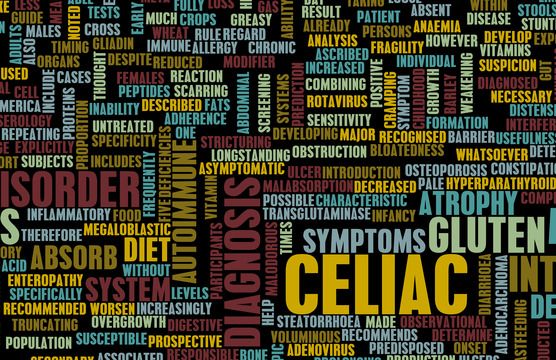
What is celiac disease?
Celiac disease in individuals means that they are gluten sensitive. It is an intestinal disorder and the sensitivity is genetically inherited. The main cause for the disease, however, is not known. The disorder symptoms of celiac disease may be developed at any time from the period of childhood up till adulthood. It can also be triggered by emotional stress, surgery, childbirth, or an illness.
Adopt a celiac disease diet – A person with celiac diseases should not consume food items containing gluten since this can trigger an immune response. Over time, such an immune response can damage the villi found in the small intestine lining. Such damage to the villi can hence prevent food from being properly absorbed into the bloodstream, which can thus prevent healthy functioning of the body.
How Does A Person Acquire Celiac Disease?
Researchers and doctors are still not aware of what exactly is the cause of this disease. However, celiac disease happens to be more common in the following individuals:
- An individual who has an autoimmune disease like rheumatoid arthritis, autoimmune thyroid, liver disease, type 1 diabetes, Addison’s disease, or Sjogren’s syndrome..
- Individuals who have a genetic disorder like Turner’s syndrome or Down syndrome.
- An individual who has a family member with this disease.
If you happen to have this disease, then you might not be aware of it straight away. Certain events or illnesses can also trigger this disease in your particular situation.
Symptoms
Here are some of the symptoms that a person having celiac disease can be affected with:
- Reduced spleen function or hyposplenism
- Injury to the nervous system, including tingling and numbness in the hands and feet, and possible balance issues
- Bone density loss, i.e. osteoporosis, or bone softening, i.e.osteomalacia
- Joint pain
- Blistery or itchy skin rash, e.g. dermatitis herpetiformis
- Fatigue and headache
- Dental enamel damage
- Anemia, usually due to iron deficiency
- Heartburn and acid reflux
When You Should Visit The Doctor
In the case of digestive discomfort or diarrhea that is there for two or more weeks or if you see that your child is failing to grow, irritable, pale, or have bulky or foul-smelling stools, then you should immediately consider getting a checkup. Your pediatrician might consider celiac disease treatments
Is celiac disease curable and Testing for celiac disease – You would also then need to talk to your doctor about a diet that is free of gluten. The celiac disease normally runs in the family. Therefore, if there is an individual in your family suffering from the condition, you should consider getting yourself tested as well.
For more information about symptoms of celiac disease, please click here!


